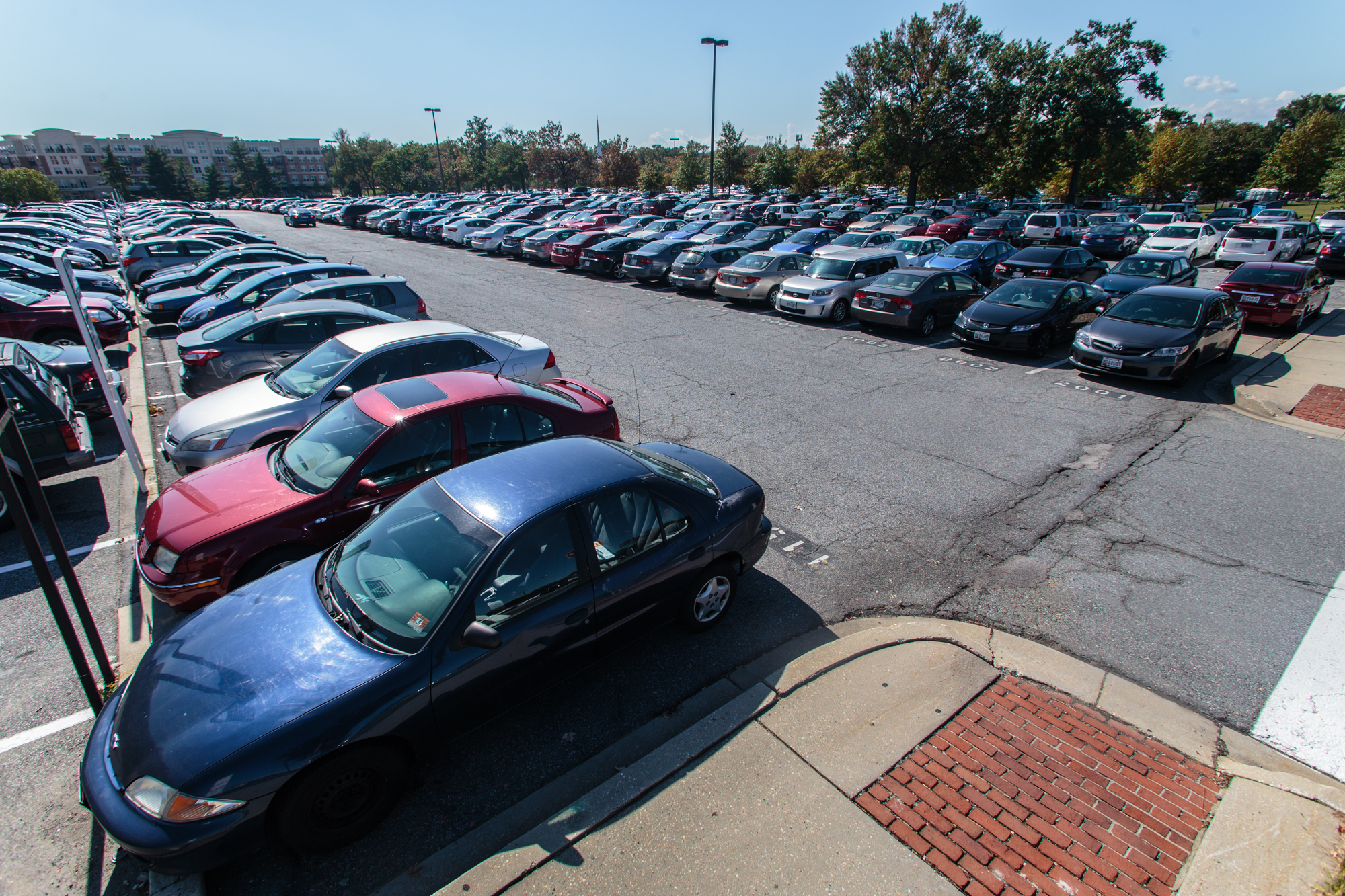As part of the University of Maryland’s ongoing effort to become carbon-neutral by the year 2050, DOTS has launched a new campaign focused on sustainable ways to travel.
The Department of Transportation Services has launched an online platform where students, faculty and staff who typically commute to the campus in cars can enter their home address and get ideas for alternative routes. The new website, part of DOTS’ Smart Commute initiative, will connect individuals with similar daily travel routes to facilitate carpooling or vanpooling, said Anna McLaughlin, the department’s assistant director.
The central goal of the initiative — the slogan for which is “rethink your ride” — is to reduce the number of single-occupancy vehicles traveling to the campus each day, McLaughlin said.
“We can buy carbon offsets, or we can get people not to drive, and I think getting people not to drive is a better way to do it,” she said.
[Read more: UMD DOTS adds spots to Lot 1 amid parking shortages]
The website will also provide directions to the nearest transit stop or bike path, and users will be able to track their rides, earn points and win prizes, McLaughlin said. She added that she hopes it will help people become excited about sustainable transportation.
Acheve Bhagat, a sophomore computer science major, said while he supports the push for greener transportation, he’s not on board with the carpool-linking feature of the website.
“I think it’s weird. … I don’t want to be carpooling with a bunch of random people,” Bhagat said. “It’s a good idea, it’s a good start, but it’s weird.”
DOTS has also placed new restrictions on some on-campus parking lots, including the Smart Commute Lot across from Stamp Student Union. The space has been deemed a “Green Lot,” meaning that it is exclusively for bikes, carpool vehicles and low-emission vehicles. A special permit is required to park there, McLaughlin said.
McLaughlin emphasized the need to discourage commuters from driving their cars to the campus, both to help the environment and due to an increasing shortage of on-campus parking.
Recent parking shortages, many of which are due to campus construction, have affected many students, faculty and staff who commute to the campus. The renovation of Cole Field House, the addition of new tennis courts near Eppley Recreation Center and the building of the Brendan Iribe Center have all cost this university parking spaces.
On-campus parking will also be affected by construction of the Purple Line, which is scheduled to begin later this year. The light rail is slated to remove about 550 parking spaces by fall 2018.
[Read more: As parking losses loom for UMD students, DOTS is incentivizing sustainable transportation]
“We’re losing a lot of parking on campus,” McLaughlin said. “It’s not pretty, and we know it’s not.”
DOTS worked closely with this university’s sustainability office to coordinate and implement the new initiatives. Andrew Muir, the sustainability office’s communications director, said his office and DOTS collect and share detailed data sets to best implement new campaigns, and the two departments team up for outreach and promotion efforts.
Some students, such as junior civil engineering major Eric McKenna, are enthusiastic about the new initiatives and hope they will help address campus parking shortages.
“It’s definitely a good move on both directions,” McKenna said. “Campus parking is always rough, and obviously, the sustainability efforts on campus are a good thing. … We’re a very green school, which I like a lot.”
Muir said he thinks “the biggest struggle” in popularizing sustainable transportation is breaking the conception that green transportation is less convenient than driving a car.
“At the forefront, it can seem like an inconvenience, but oftentimes it’s just a matter of given something a try and seeing if it works,” Muir said, adding that some options, such as biking or jogging, can be healthy for people and the environment.
“Even before the ‘rethink your ride,'” he said, “we’ve always been trying to make sure that people on the campus are aware of green commuting options.”
CORRECTION: Due to a reporting error, a previous version of this story incorrectly stated that the Purple Line would remove about 2,800 campus parking spots by fall 2018. The Purple Line is slated to remove about 550 spots. This story has been updated.



